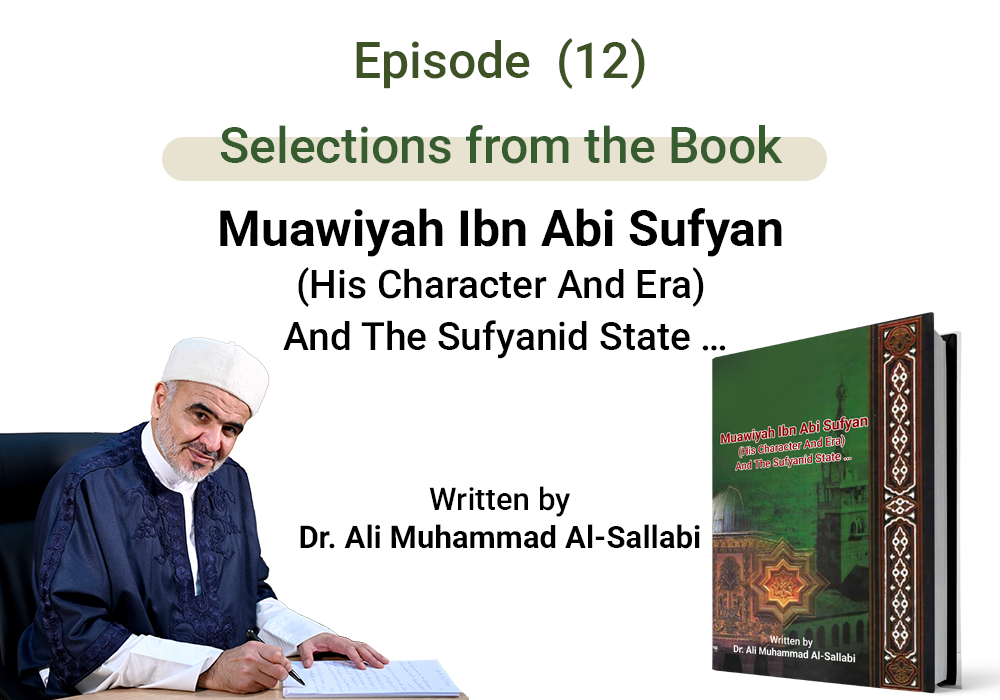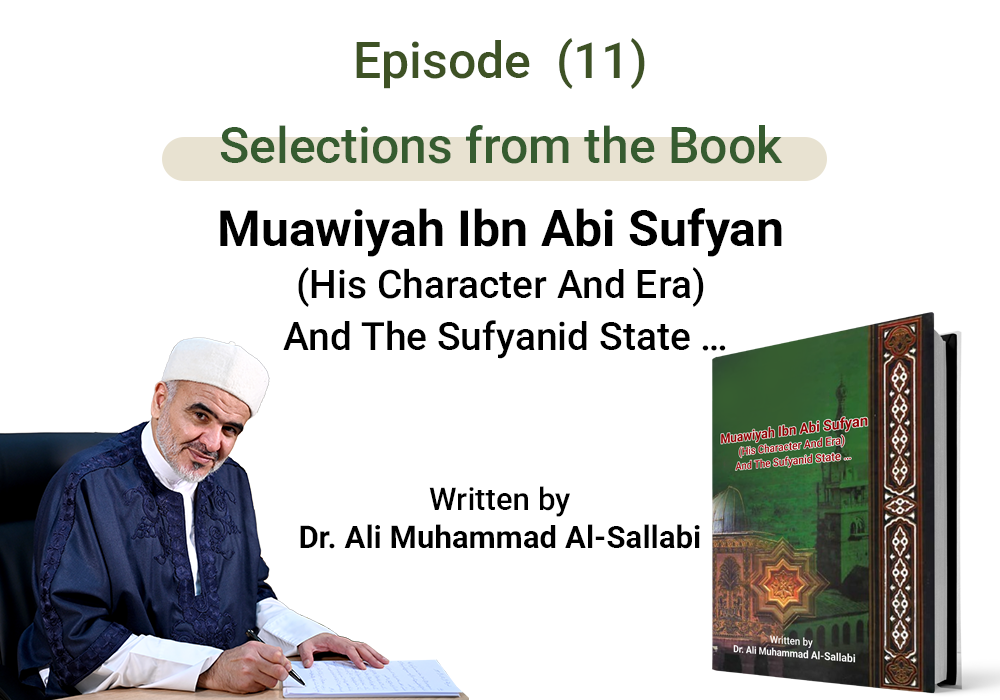Noble Treatment During War And Confrontation
Selections from the Book Muawiyah Ibn Abi Sufyan (His Character And Era) And The Sufyanid State …
Written by Dr. Ali Muhammad al-Sallabi...
Episode (13)
The Battle of Siffin was one of the most astonishing incidents among Muslims. These events were so strange that the reader can hardly believe what he reads, and stands amazed at the nature of the souls on both sides. Each stood in the middle of the battlefield, sword in hand, fully believing in his cause. It was not a battle pushed by leadership forcing soldiers into a war they did not believe in — rather, it was a unique battle in its motivations, its execution, and the effects it left behind.
Its motivations in the hearts of the participants are reflected in some of the incidents transmitted in historical sources. They were brothers who would go together to the water source and drink together, crowding around as they scooped the water, without one person harming another. They were brothers living together when the fighting would stop. One of the participants said: “When we agreed to pause the fighting, they would enter our camp, and we would enter theirs. They would speak to us and we would speak to them”. They were from one tribe, and each had his own interpretation, so members of the same tribe fought on opposite sides in bitter combat — each one believing himself to be on the right, and ready to die for that belief.
Two men would fight each other until they were both wounded and exhausted, then sit to rest, exchange lengthy conversation, and then get up and fight again as they were before. They were united by one religion, which was more beloved to them than their own lives. When the time for prayer came, they would stop to perform it. And on the day Ammar ibn Yasir was killed, both sides prayed over him.
An eyewitness who participated in Siffin recounts: “We faced off at Siffin and fought for several days until the number of those killed became great and the horses were exhausted. Ali sent a message to Amr ibn al-Aas saying that the number of dead had become too many, so let us stop until everyone can bury their dead. He agreed, and some of the people mingled with each other until they were like this” — and he interlocked his fingers. “A man from the companions of Ali would charge in and kill someone in Muawiya’s camp, then be pulled out. The companions of Ali once passed by one of their dead in front of Amr, and when he saw him, he wept and said: ‘He was a mujtahid, stern in the cause of Allah.’”
They were quick to forbid wrongdoing even in such settings. There was a group known as the Reciters who were students of Abdullah ibn Masud, from both Iraq and al-Sham. They did not join either the Commander of the Faithful Ali or Muawiyah ibn Abi Sufyan. They said to the Commander of the Faithful: “We will go out with you, but we will not stay in your camp. We will camp separately until we observe your matter and that of the people of al-Sham. Whoever we see seeking what is impermissible, or from whom aggression appears, we will stand against him”. Ali replied: “Welcome and greetings. This is true understanding in religion and knowledge of the Sunnah. Whoever is not content with this is unjust and treacherous.”
In truth, these positions arose from convictions and interpretations they had deeply verified within themselves and fought for.
- Ali Muhammad al-Sallabi, Muawiyah Ibn Abi Sufyan (His Character And Era) And The Sufyanid State, pp. 256-258.
- Al-Tabari’s History (5/610).
- Biographies of the Noble Figures (2/41).
- Narrations of Abu Mikhnaf, p. 296.
- Studies in the Era of Prophethood, p. 424.
- The Beginning and the End (10/272).
- History of Damascus (8/233).
For further information and review of the sources for the article, see:
The Book of “Muawiyah Ibn Abi Sufyan (His Character And Era) And The Sufyanid State” on the official website of Sheikh Dr. Ali Muhammad al-Sallabi:






